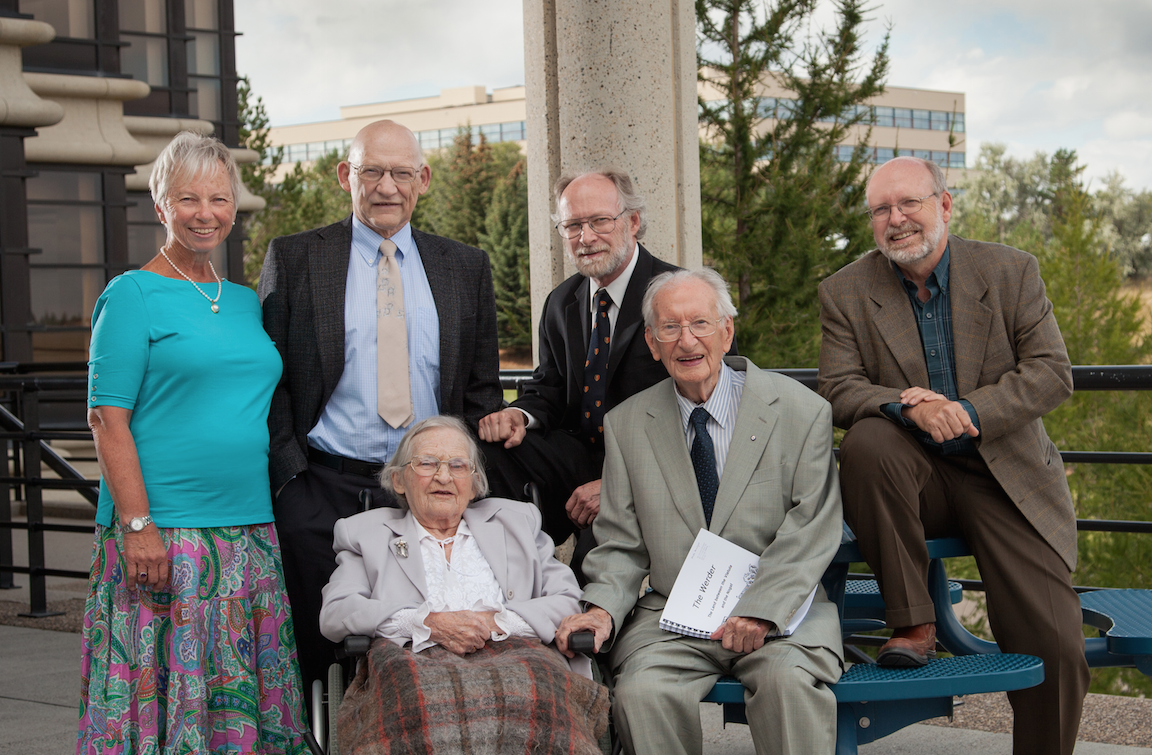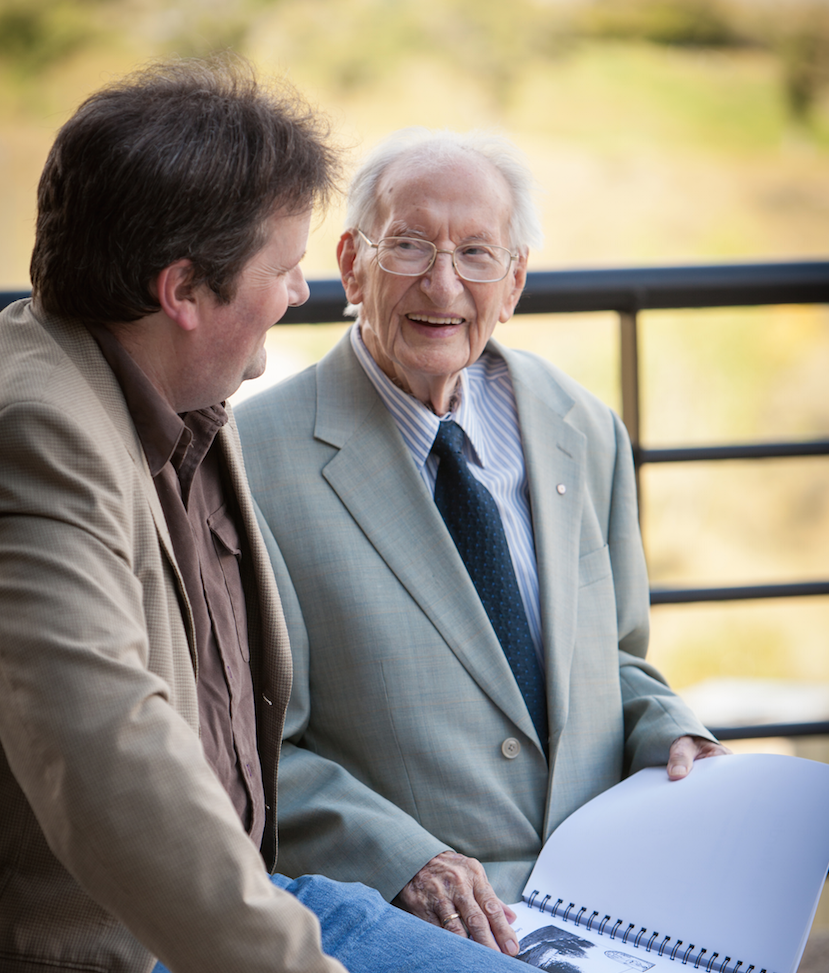
“I still remember it very clearly. I was about 14 years old when the war broke out. My dad was sure something was going on. He turned on the radio and woke us up. Hitler had started the war. I had never seen my dad like that. He cried. He swore. My mother couldn’t settle him down. He was afraid my brother and I would have to go to war. He had been a veteran of the in World War 1, and he knew what war was like,” recalls Driedger.
The fears of Driedger’s father became reality when Driedger and his older brother enlisted in the German army. His brother died in combat; Driedger, while working in medical service, was taken as a prisoner of war with the British Army. Lucky to have avoided being taken by the Soviet Army, Driedger continued to serve in various army hospitals and married his former classmate Hilda. After being discharged by the British Occupational Forces, Driedger carried on in pursuit of a medical career at the Christian Albrecht University in Kiel and graduated in December 1948.
After three years in General Practice, he and Hilda knew it was time for them to leave Germany because of threats of the Cold War. They stepped off the Beaverbrae in Saint John, NB, Canada, with a growing family and a scant $10 to their names.

“I will never forget, I was so proud. They did not refer to us as immigrants but as “New Canadians,”” Driedger recounts.
After landing in Canada, Driedger worked in general medical practice for three years before he went on to complete his studies in Orthopedic Surgery at the University of Pennsylvania. Later, he and Hilda returned to Lethbridge, Alta, where they would put down roots.
It’s an understatement to say that Driedger has had many life-defining experiences, but his knowledge transcends texts, having lived through the real pages of time.
Understanding that memories can easily fade and be forever lost, Driedger wrote a book, The Werder, in his retirement years, an account of his homeland. Writing meant more than relaying details and dates; Driedger wanted to engage the next generation so that the same mistakes can be potentially avoided.
“I will not say that the politician will learn the facts of history before they engage in warfare, but we can inform people to look at history, so they do not go blind into that adventure,”says Driedger.
In a desire to honour Driedger’s lifelong love of history, Driedger’s four children made a $100,000 donation this fall to the Department of History at the University of Lethbridge.
“My father was an orthopedic surgeon, but he always had a great interest in history and wanted to do something to promote it,” says Walter Driedger, one of Gerhard and Hilda’s sons. “Fundamentally, he doesn’t want the next generation to be totally ignorant of the history of Eastern Europe.”
Half of the money will be used to support the history department for things like lectures, guest speakers and conferences. The remaining half will establish a scholarship that will be given to fourth-year history students of high academic standing, covering 50 per cent of their tuition and fees.
“Generous donations to the University of Lethbridge like that of the Driedger family, in addition to strengthening the programs offered by the departments which receive them, also allow some students to attend university who might otherwise not be able, or avoid falling into debt during their studies,” says Dr. Christopher Epplett, Chair of the Department of History.
“I would simply like to thank the Driedger family for their exemplary generosity. Our department will certainly strive to use the Driedger bequest in as many ways as possible to further the study and appreciation of history, both at the University of Lethbridge and in the wider community.”
It’s a goal that resonates with Driedger, who frequently quotes John Knox, “Though the facts, here recited, are known, how long will that knowledge continue, if they are trusted merely to memory?”
